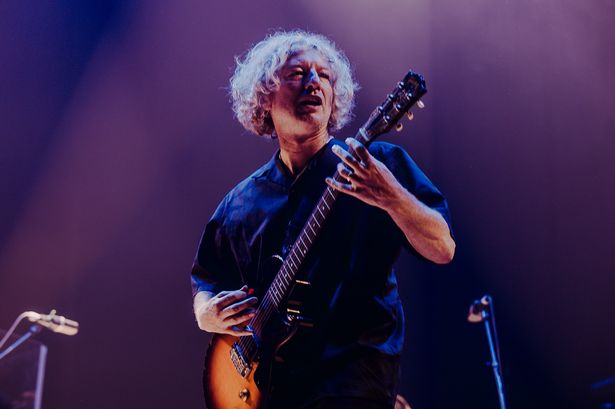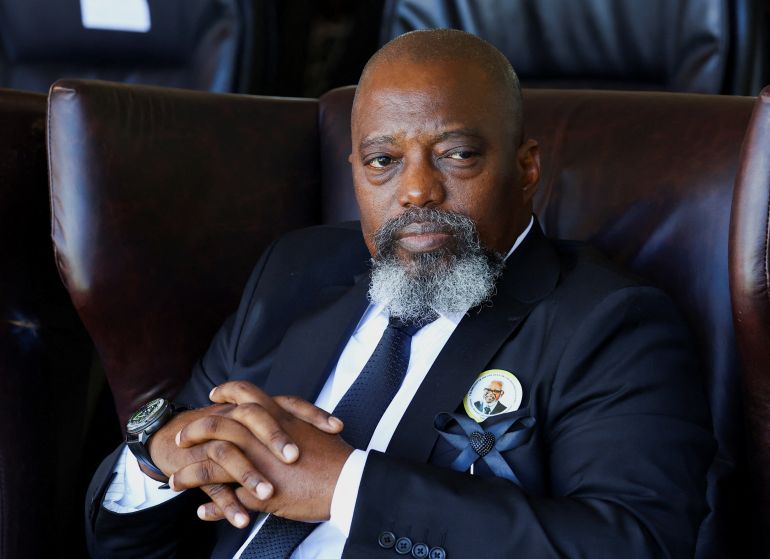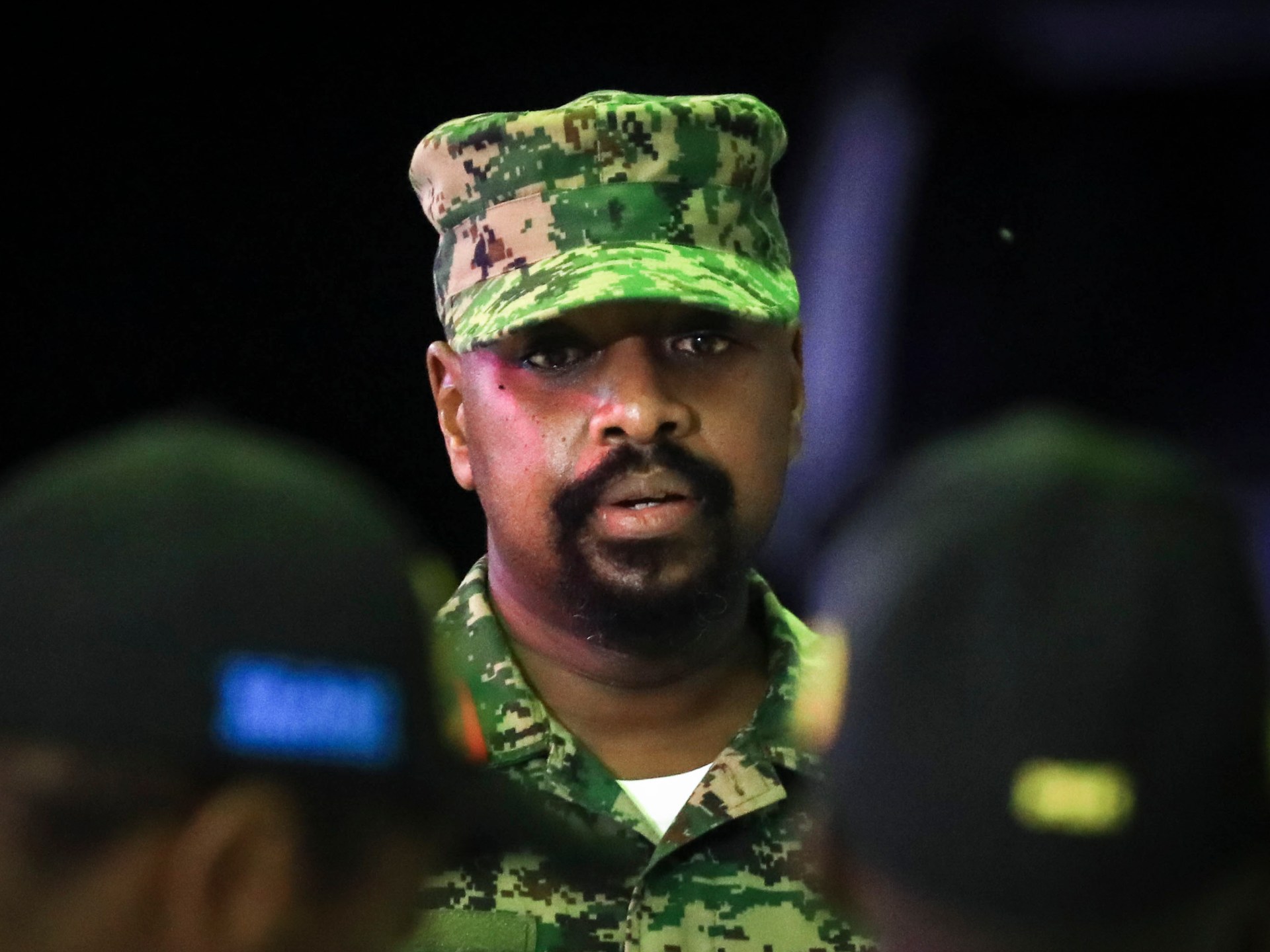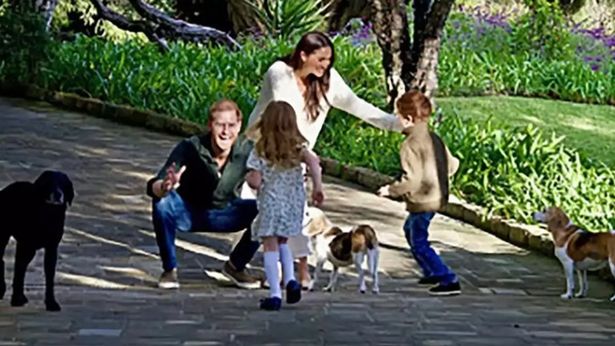Cast played with Liam Gallagher last year and the frontman phoned up to personally invite them back for the Oasis Live 25 tour
John Power will be entertaining fans this Summer as they sip beers waiting for an incredible moment to happen on stage when Oasis reunite in massive stadiums.
But as well as being the lead singer in Cast and performing alongside Richard Ashcroft as a support act, he will also be there in part as a fan. Looking ahead to the Oasis Live 25 shows which kick off in Cardiff in July, John says: “I think it’s the right time for them to walk on stage together in far too long, you know. And sometimes you’ve got to do it, sometimes things are just right. I’m looking forward to it myself as a fan to watch them come on. It’s going to be some tour to be part of.”
At 57, John knows what it is like to play huge shows and have massive hits having been in The La’s from 1986 to 1991 and then forming Cast afterwards who had phenomenal success themselves in the Britpop years of the Nineties.
The band split up in 2001 but reformed in 2010 and last year they toured as support for Liam Gallagher as he played a Definitely Maybe Oasis tour which fans loved. And now the Manchester frontman has personally got them back for the Oasis shows.
John said: “I got a call from a number, and I have got Liam and Noel’s numbers and all that, but it was a different number, and I don’t normally answer them.
“And I picked it up, and it was Debbie, Liam’s manager and his wife, and Liam in the background as well. And then Liam, he’d just spoken to Noel and they just discussed it, and they just said, ‘You know, look, we just spoke to our kid. Do you want to open up on the tour?’
“I was like, ‘You know, I think I do actually!’ And it was a really cool conversation, and then we were blown away like, I mean, it was like the best news we could have hoped for.”
He adds: “It’s the biggest tour this year and it authenticates the legacy of Cast. This is a band in previous years if there was a Britpop list, top 20, we wouldn’t even be in it.
“But now you can’t do it. Because it’s like the biggest band of that time are saying ‘check this out’.”
As well as the call from Liam, Cast firmly have the Oasis seal-of-approval with Noel Gallagher previously describing frontman John as being “as cosmic as the day is long.”
The Gallaghers also enjoyed Cast 2024 album Love Is The Call, their first new LP in seven years, although their debut album All Change released in October 1995 is still the one most people will know.
Fans can expect John to belt out ‘Alright’ and ‘Finetime’ to fire up audiences from the off, while slow burners such as ‘Sandstorm’ and ‘Walkaway’ are perfect for early singalongs in the stadiums.
After touring with Oasis, Cast will then be on the road themselves with dates going through the year.
John formed the band with Peter Wilkinson who played bass and Liam ‘Skin’ Tyson on guitar and Keith O’Neill on drums completed the line up. Three of the original band – minus Peter – are still playing together now.
Now older and wiser from decades on the road and in the spotlight, John seems content as well as excited about new material for the band.
“I think when you’re younger, you’re kind of trying out a load of different personalities before you get it right. You know, your split personality, there was John this, John that, but lots of that is kind of… just kind of coats you have taken off.
“So what you see now and what you hear now is the genuine ‘John’. You know, it’s the all encompassing John. There was John who played bass in The Las. There was John who was the young Cast singer. There was John who didn’t quite know…. well they’ve all come together.
“I can appreciate and make my peace with the two iconic bands I’ve been in, whilst feeling like’m in this good place at the moment.
“The music industry can be very fickle and fad orientated. And we’ve kind of, we’ve had success, we’ve lost it, we split up, we kind of got back together. We kind of kept it together barely as a band, and then we regrouped,
“And now we’ve been away already and we’ve come back about a month ago. We’ve got a new album recorded that will be out this time next year and it’s, you know, it’s anthemic.
“It’s the one of those records that you make at the right time in your career. So, I mean, there’s a lot of good… I’m kind of right in the pocket at the moment, right in the groove in many things in my life.”
He adds: “It’s funny, but I’m driven in not a desperate way. I’ve realised that the universe meets you. I mean, I always used to say the universe will meet you halfway if you do certain actions, but it doesn’t do desperation. You know, if you want something too much for whatever reason, you don’t get it. So what I’m concentrating on is being very present with my music, very present with my energy.”
Away from the stage, Power and his grown up son Fin will both have been thrilled with Liverpool’s Premier League title this season. A proud Scouser he often puts photos from his hometown on social media including a recent trip to Penny Lane which is close to where he went to school.
And looking even further ahead, John is set to keep playing live his whole life and seems born to do it.
He says: “I don’t think I’m going to stop. I mean, I might not be as intense. The last two years have been slightly intense, and this year there’s so much going on that, like, I’m just literally taking it one day at a time, because I look too far ahead I could freeze.
“But all I know is that if I stay in the pocket in this present moment, things seem to be coming our way. And we’re writing great music. The next album is going to blow your mind and I mean that – it’s a special record.”
* Cast are on tour with Oasis this Summer, their own tour Cast: 30 Years of All Change begins in October.










